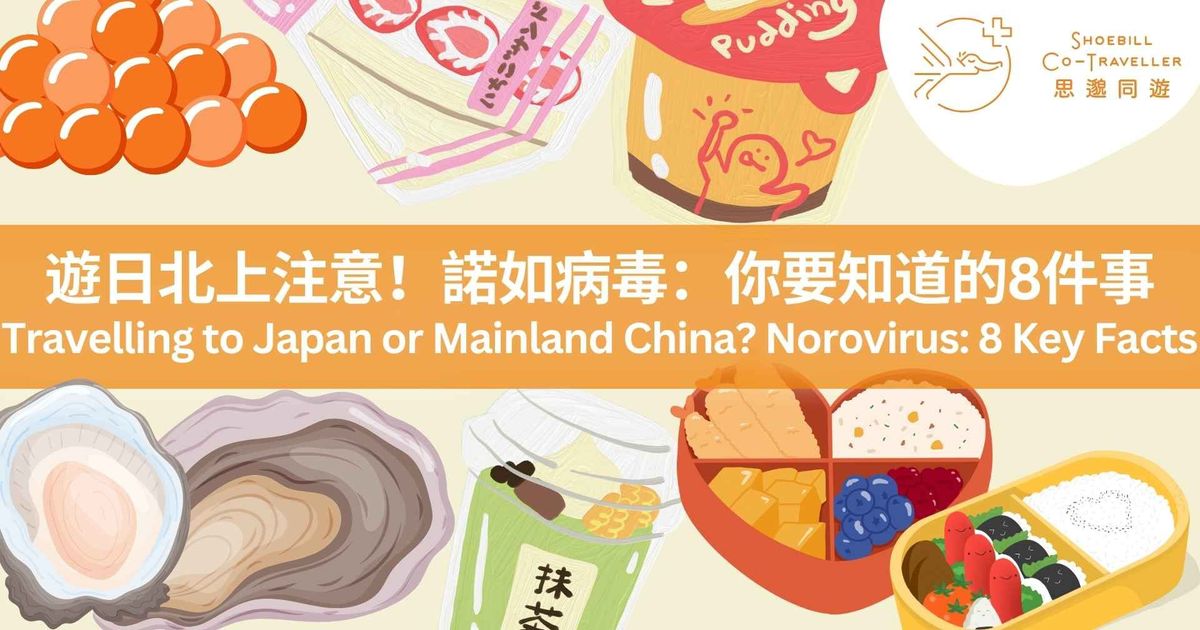
Norovirus outbreaks in Japan and Shenzhen have been making headlines recently. In Japan, over 100 cases have been reported across multiple regions. In Nagano, a restaurant's bento caused 12 infections, while 81 people in Nakano, Tokyo, fell ill after eating the bento, confirmed to be caused by norovirus. In Miyagi, 37 people were infected after eating raw oysters sold at Costco stores.
Meanwhile, in Shenzhen, the local health authority raised the norovirus risk level from "low" to "medium" between February 12 and 18, warning residents to take extra precautions.
Here are 8 things you should know about norovirus:
1. It’s a Super-Spreader
Norovirus is extremely contagious—just 18 to 100 virus particles can make you sick. To put it in perspective, a single vomiting episode can release millions of particles, which is why it spreads so quickly in places like schools, offices, and cruise ships.
2. Vomit Can Spread It
Norovirus doesn’t just spread through food or water, but also through tiny particles in the air from a patient’s vomit, which can be inhaled. If someone nearby vomits, keep your distance and quickly clean and disinfect the contaminated area.
3. Hand Sanitizer Won’t Cut It
Alcohol-based hand sanitizers don’t work well against norovirus. Wash your hands with soap and water for at least 20 seconds, especially after using the bathroom, before eating, and after handling food.
4. Be Careful with Shellfish
Shellfish like oysters, clams, and mussels are common culprits for norovirus infections. If they come from contaminated waters, eating them raw or undercooked can make you sick. Always cook shellfish thoroughly to kill the virus.
5. Symptoms Come on Fast and Hit Hard
If you’re infected, symptoms like nausea, vomiting, diarrhea, and stomach cramps can hit within 12 to 48 hours. While most people recover in 1 to 3 days, it can be rough—especially for kids, the elderly, and those with weaker immune systems.
6. No Specific Medication
There’s no specific treatment for norovirus. The focus is on managing symptoms: drink plenty of fluids to stay hydrated and replace lost electrolytes. Antibiotics won’t help, and if symptoms are severe (like constant vomiting or dehydration), see a doctor.
7. Bleach is a Good Disinfectant
If someone in your household gets sick, clean contaminated surfaces (like toilets, doorknobs, and countertops) with a bleach solution (1 part bleach to 49 parts water). Wash the sick person’s clothes and bedding with hot water and detergent.
8. Winter is Norovirus Season
Norovirus is particularly active in winter, making the peak infection period from November to March.
Prevention is Everything!
Norovirus is tough, but you can protect yourself. Wash your hands often, cook food thoroughly, and keep your home clean.
Reference: Norovirus Infection (CHP, 2023)
About Shoebill Co-Traveller
Our clinic specializes in travel health services, offering expert vaccination advice and administration:
- Comprehensive Vaccine Options: We provide all necessary vaccinations for travel.
- Professional Medical Consultation: As Hong Kong's first private travel health center, our healthcare team holds international travel medicine certifications and offers personalized advice based on your itinerary and health status.
- Convenient Appointment System: Enjoy transparent pricing and online booking services to save you time.


